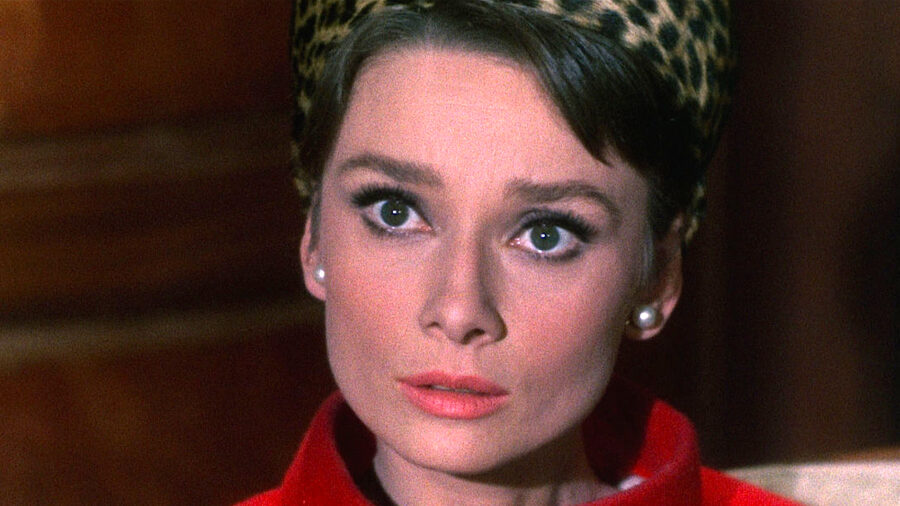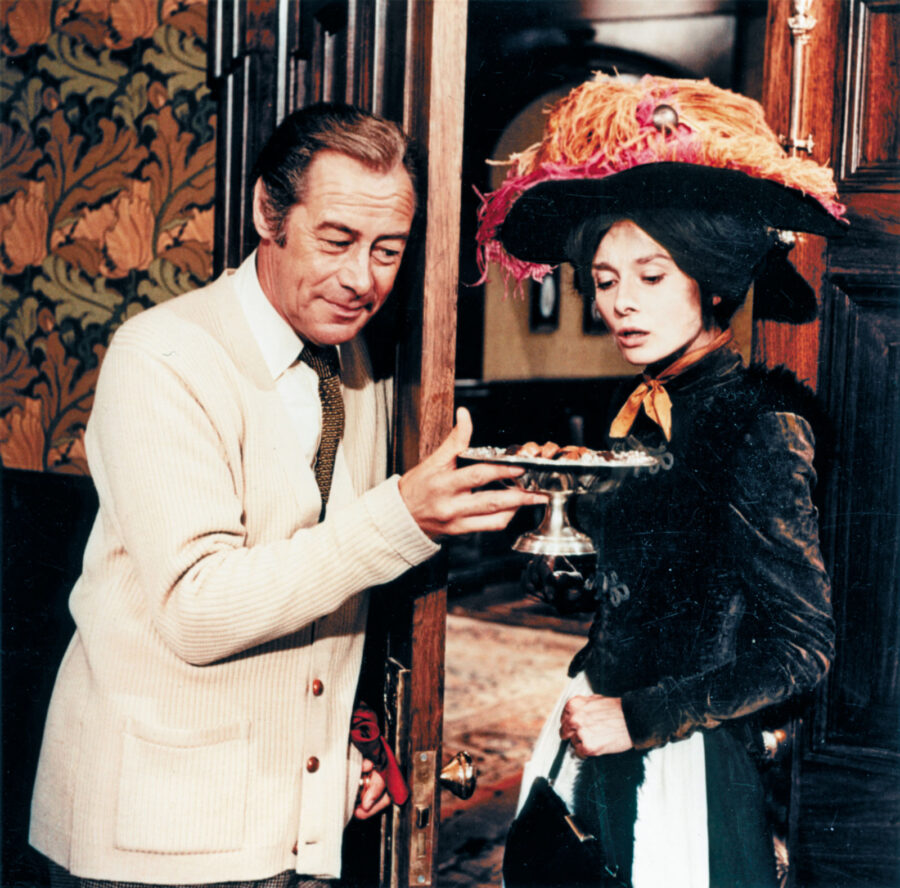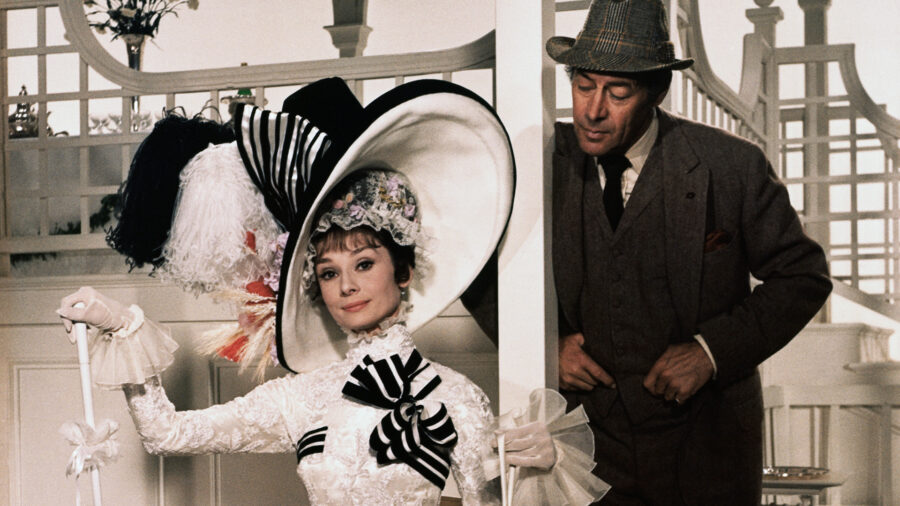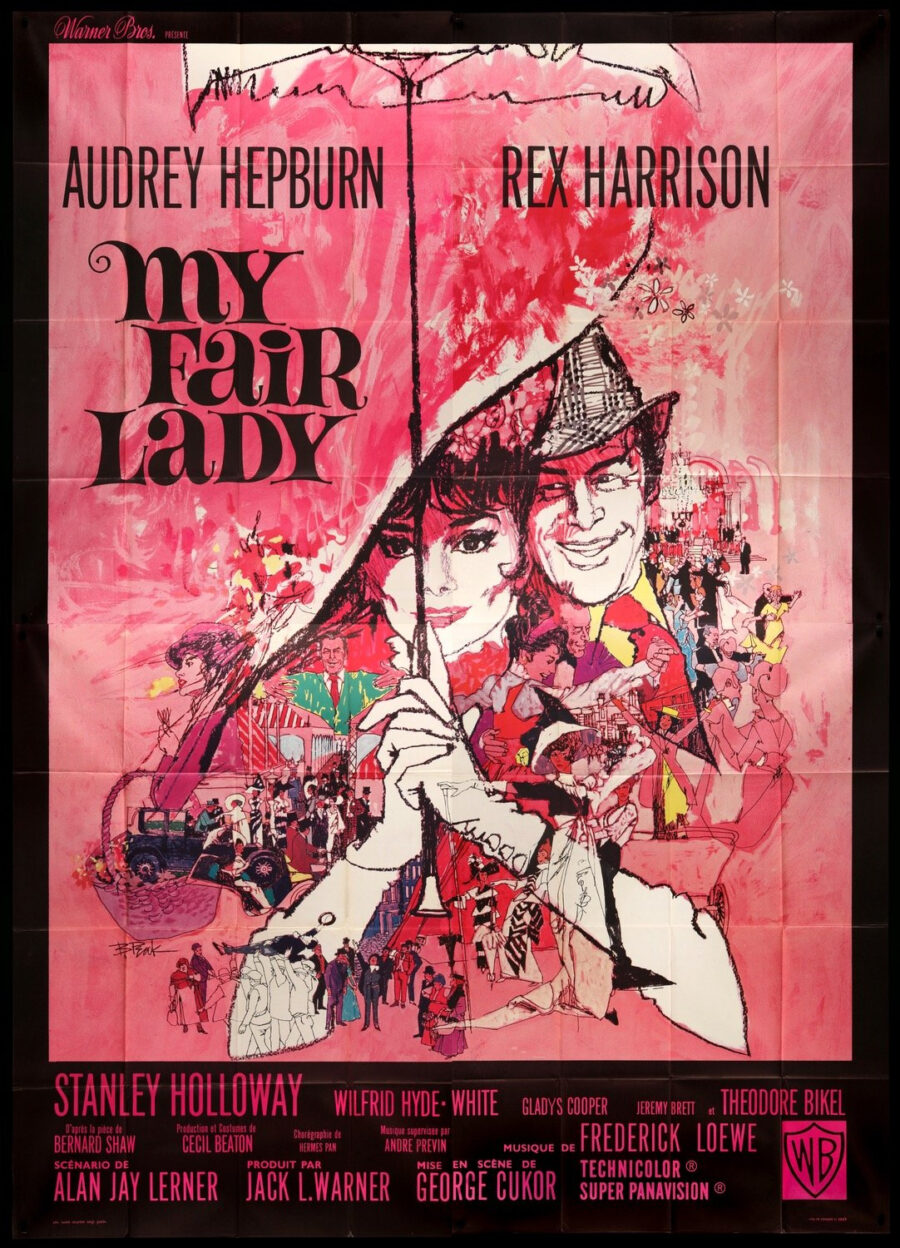Audrey Hepburn’s Most Beloved Movie Is Now On Netflix
The greatest Audrey Hepburn movie is available on Netflix.
This article is more than 2 years old

Audrey Hepburn is considered a screen legend. The American Film Institute has her ranked as the third greatest female screen legend to come from the Golden Age of Hollywood and now one of Hepburn’s most recognized movies is streaming on Netflix.
My Fair Lady is the 1964 musical that stars Audrey Hepburn as Eliza Doolittle and Rex Harrison as Professor Henry Higgins. The story, based on the 1956 Alan Jay Lerner/Frederick Lowe stage musical of the same name, which in turn was based on the 1913 George Bernard Shaw play Pygmalion, follows the poor Cockney Eliza Doolittle as she is transformed into a proper English woman by the arrogant Henry Higgins.
Professor Higgins is a scholar of phonetics. His belief is that the accent and tone of one’s voice help determine a person’s prospects in society. During a meeting with Colonel Pickering at a fruit-and-vegetable market, the arrogant Higgins boasts to Pickering that he could teach even Eliza Doolittle (Audrey Hepburn), who is working selling flowers at the market and who has a very strong Cockney accent, to speak so well that he could pass her off as a duchess at an upcoming embassy ball. When Eliza shows up on Professor Higgins’s doorstep the next morning, Pickering is intrigued enough that he offers to cover all expenses if Higgins can successfully teach Eliza to speak properly.
Eliza endures every manner of Higgins’s teaching but for the longest time shows no improvement. Both Higgins and Pickering are about to give up when Eliza finally gets it, leading to one of the movie’s most recognizable songs, “The Rain in Spain“, which is the pivotal turning point in the film and a monumental scene in the career of Audrey Hepburn.
Now that Eliza has the ability to speak with a flawless upper-class accent, Higgins needs to take her on a test run before he can chance her at an embassy ball. He takes her to the Ascot Racecourse (horse racing) where Eliza passes with flying colors. That is until the horses begin to race. While cheering, she slips back into her Cockney accent, shocking those around her. But also at the racecourse, she meets up with the dashing Freddy Eynsford-Hill, who immediately becomes infatuated with her.
While Freddy becomes a wedge between Eliza and Higgins, the bigger wedge is the fact that Higgins gets all the praise for Eliza’s accent while she gets none. This upsets Eliza as it seems to her that her hard work means nothing. Combine that with how Higgins continues to treat Eliza poorly and she decides to leave Higgins, telling him she is going to marry Freddy.

Higgins’s arrogance blinds him to the fact that he is truly responsible for Eliza leaving and his inability to acknowledge the work she put into it was the cause. Higgins still thinks she will return. When she doesn’t, Higgins finally comes to the realization that Eliza has become an important part of his life, if he only had another chance to let her know.
When My Fair Lady was made, it had an unheard of (at the time) budget of $17 million. But also at that time, the movie brought in an impressive $72 million at the box office. The movie also had an impressive running time of 170 minutes, causing the filmmakers to add in an intermission to give audiences a chance to get up and stretch their legs.
Audrey Hepburn wasn’t known for her singing voice when she took on the role of Eliza Doolittle. While she did give it a go and recorded most of the songs for the movie, ultimately it was determined that her voice just wasn’t up to snuff, so they brought in singer Marni Nixon to dub Hepburn’s singing. For Rex Harrison, he sang on his own but refused to pre-dub his songs. He felt he couldn’t mimic the songs exactly, fearing he wouldn’t be able to properly lip-synch, so he was set up with the very first wireless microphone and sang his portions live on set. For this wireless microphone, the movie (and wireless creator George Groves) won one of the film’s eight Academy Awards which included Best Picture, Best Actor for Harrison, and Best Director for George Cukor. Amazingly enough, Audrey Hepburn wasn’t even nominated for her amazing role as Eliza Doolittle.

The movie was met with (and still is) a great critical response. American film critic James Berardinelli said in his retrospective review of the movie, “Few genres of films are as magical as musicals, and few musicals are as intelligent and lively as My Fair Lady. It’s a classic not because a group of stuffy film experts have labeled it as such, but because it has been, and always will be, a pure joy to experience.” My Fair Lady holds a remarkable 8.65/10 on the now-famous Giant Freakin Movie Scale (yes, it is rumored that we like old musicals too).
Audrey Hepburn rose to stardom in the romantic comedy Roman Holiday alongside another screen legend Gregory Peck. Hepburn became the first actress to win an Oscar, a Golden Globe Award, and a BAFTA Award for a single performance. Hepburn went on to star in such classic movies as Sabrina, War and Peace, The Nun’s Story, Breakfast at Tiffany’s, Two for the Road, Wait Until Dark, and Robin and Marian.
After her role in the 1967 thriller Wait Until Dark, Hepburn went into semi-retirement. It took nine years before she’d come out with Robin and Marian, where she starred opposite Sean Connery. Her last feature film lead came in the vastly underrated 1981 Peter Bogdanovich’s They All Laughed, a film that she co-starred with Ben Gazzara. This was a film that was also marked with a horrible tragedy as it starred former Playboy playmate Dorothy Stratten, who was brutally murdered by her estranged husband/manager Paul Snider, who then killed himself, all before the movie was released.

My Fair Lady is a true musical masterpiece. It is at once fun, lively, with catchy tunes, if one is in the mood for a ‘60s-style musical. Audrey Hepburn plays an amazing Eliza Doolittle, a performance that should not be missed. Thankfully, Netflix has it. Go check it out.










